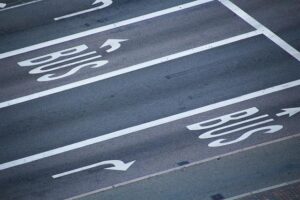Transforming Higher Education to Meet the Demands of Tomorrow’s Workforce
As the professional world undergoes rapid transformation, higher education institutions face increasing demands to prepare students not only with theoretical knowledge but also with practical skills and real-world experiences essential for future career success. Colleges and universities are evolving into vibrant innovation hubs-leveraging technology, industry collaborations, and experiential learning-to better equip graduates for an unpredictable employment landscape. This article delves into how reimagining educational frameworks can close the divide between academia and industry, empowering students to become leaders in tomorrow’s workforce.
Aligning Academic Programs with Future Industry Trends
In today’s fast-changing economic environment, academic curricula must be continuously updated to reflect emerging sector demands. Institutions need to engage closely with industry experts to identify skill shortages and technological advancements, ensuring that course offerings remain relevant and forward-looking. This involves embedding hands-on learning opportunities such as internships, collaborative projects, and interdisciplinary courses that simulate real workplace challenges. Universities adopting this agile approach enable graduates to transition smoothly into professional roles, minimizing the gap between education and employment.
Key strategies for curriculum modernization include:
- Ongoing Industry Engagement: Form advisory panels with professionals from innovative fields to steer curriculum development.
- Balanced Skill Development: Combine technical proficiency with essential soft skills like communication, adaptability, and critical thinking.
- Integration of Cutting-Edge Technologies: Incorporate subjects such as artificial intelligence, blockchain, and sustainable technologies to future-proof learning.
- Modular and Personalized Learning: Offer flexible course structures that allow students to tailor their education to specific career aspirations.
| Sector | Emerging Competency | Curriculum Implementation |
|---|---|---|
| Information Technology | Artificial Intelligence & Data Science | Hands-on AI labs and data analytics workshops |
| Healthcare | Digital Health & Predictive Analytics | Simulated clinical scenarios and health informatics courses |
| Renewable Energy | Clean Energy Systems | Practical projects on solar, wind, and energy storage |
| Financial Services | FinTech & Blockchain Applications | Case studies and coding bootcamps focused on financial innovation |
Fostering Robust Collaborations Between Academia and Industry
Building meaningful partnerships between universities and employers is essential for bridging the gap between education and employment. Higher education institutions must evolve from isolated knowledge centers into interactive platforms where academic inquiry meets practical problem-solving. Incorporating employer feedback into curriculum design and providing immersive work experiences-such as co-created projects, internships, and mentorship programs-ensures students develop skills aligned with real-world demands. These collaborations not only enhance student readiness but also help companies cultivate talent tailored to future challenges.
Benefits of such partnerships extend beyond individual student success, including:
- Improved Job Readiness: Graduates possess skills directly applicable to current industry needs, facilitating smoother career entry.
- Curriculum Relevance: Academic programs stay current with technological progress and market trends.
- Innovation and Research: Joint initiatives drive breakthroughs with commercial and societal impact.
- Community and Economic Growth: Strengthened ties between universities and local businesses boost regional development.
| Collaboration Component | Resulting Advantages |
|---|---|
| Internship Opportunities | Skill application and professional networking |
| Industry Advisory Committees | Curriculum alignment and foresight into emerging trends |
| Collaborative Research Projects | Innovation acceleration and commercialization pathways |
Revamping Campus Facilities to Support Experiential Learning
Modern education demands environments that extend beyond traditional lecture halls, fostering active, hands-on learning aligned with industry expectations. This shift requires campuses to incorporate adaptable laboratories, collaborative maker spaces, and technology-rich zones that encourage experimentation and innovation. Facilities designed to support simulations and project-based learning empower students to tackle complex challenges and develop creative solutions with confidence.
Institutions investing in such infrastructure report higher student engagement and improved employment outcomes. Critical components include:
- Transformable Learning Spaces: Classrooms that can be reconfigured for workshops, group work, and interactive sessions.
- Industry Collaboration Centers: Dedicated hubs for mentorship, internships, and joint initiatives with businesses.
- Integrated Digital Ecosystems: Platforms enabling remote teamwork, virtual prototyping, and design thinking exercises.
These innovative environments cultivate a culture where curiosity and practical application intersect, preparing students for the demands of a rapidly evolving job market.
Equipping Students with Career-Ready Skills and Mentorship Networks
Providing students with applicable skills and connecting them to seasoned professionals is increasingly recognized as a vital component of contemporary education. Campuses that emphasize experiential learning, cross-disciplinary collaboration, and real-world internships empower graduates to confidently navigate shifting career landscapes. Beyond technical expertise, universities are nurturing essential soft skills such as communication, resilience, and leadership-traits highly valued by employers today.
Mentorship initiatives play a crucial role in linking academic learning with professional growth. By pairing students with industry veterans, institutions offer tailored guidance, career advice, and networking opportunities that translate into measurable career advancements. Core features of successful mentorship programs include:
- Workshops Aligned with Industry Needs: Skill-building sessions focused on current market demands.
- Personalized Mentoring: One-on-one coaching tailored to individual career objectives.
- Peer Support Networks: Communities fostering shared learning and collaboration.
- Career Events: Fairs and panels connecting students with diverse employers and pathways.
| Competency | Mentor Expertise | Career Benefits |
|---|---|---|
| Digital Competence | Technology Sector Professionals | Higher employability in IT and digital roles |
| Project Leadership | Business Executives | Strengthened management and organizational skills |
| Innovative Problem-Solving | Entrepreneurs and Creatives | Preparedness for startup and innovation-driven careers |
Conclusion: Embracing Change to Shape Future-Ready Graduates
As economic conditions and technologies continue to evolve at an unprecedented pace, higher education must adapt accordingly. Institutions that foster flexible learning environments, embed practical career preparation, and cultivate strong industry alliances will be best positioned to guide students toward impactful, future-proof careers. The challenge-and opportunity-lies in transforming traditional educational paradigms to anticipate and meet the workforce needs of tomorrow. By doing so, universities and colleges reaffirm their vital role as catalysts for innovation and economic growth.













